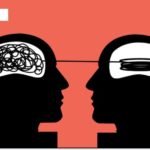Introduction
Mental illness is often associated with emotional and cognitive symptoms like sadness, anxiety, or obsessive thoughts, but its physical manifestations are just as significant. In this sense, there is a profound connection between the mind and body and so if there is a problem with one aspect, it will affect the other as well.
The Mind-Body Connection
The link between mental and physical health has been well-documented in medical literature. The implementation of the thoughts from the brain utilizes thorough pathways, through neurons, hormones, and chemicals in the body.

Common Mental Health Disorders and Their Physical Symptoms
1. Anxiety Disorders
As defined, anxiety is not a bad emotion but rather it can serve as a driving force in times of stress; however, if it becomes chronic and prolonged, it can overwhelm some critical systems in the body.
- Heart Palpitations: Feeling the heart racing or beating rapidly is a common feeling for many with anxiety. This is controlled by the physical aspects of anxiety where, for example, “fight or take flight” is activated and bodily functions are prepared to handle danger.
- Muscle Tension: There are others who also suffer from muscular tension for periods of time due to never-ending anxious feelings. This is very common around one’s neck, shoulders, and back, and leads to constant soreness and stiffness in addition to headaches.
- Shortness Of Breath And Dizzyness: Another common fear for many who have or are experiencing a panic disorder or an anxiety disorder is panic attacks. The panic attacks are caused by a fast inhale which is also known as hyperventilation and causes these feelings of faintness.
- Gastrointestinal problems: Anxiety has an immediate effect on the gastrointestinal system. Stomach issues appear as a result of anxiety for numerous people, including cramps, vomiting, diarrhea, as a result of the chance of the body wasting energy during stressful times
2. Depression
Depression is also seen as a type of emotional storm or a mood disorder, just like any other illness, including seasonal flu, it affects numerous structures of the body which makes it potentially dangerous.
- Chronic tiredness: One of the most common symptoms is disturbed sleep but is quite opposite as many people do suffer from feeling of tiredness even after they sleep well. This can also be due to fatigue but possibly off sleep patterns.
- Fluctuations in Weight: Some individuals may be preoccupied with food and gain weight while other individuals may not eat at all, thus losing weight owing to depression, which is known to impact appetite in a negative manner.
- Aches And Pains: One of the ‘other’ common physical symptoms that are familiar with depression in an affected person is persistent pain in the body regions that would comprise headache(s), join pain, or even backache – a struggle that could lead to the chronic stage ‘affecting’ more the feeling of hopelessness or fatigue.
- Weak immune system: Chronic depression may also be accompanied with inadequate immune responses thereby increasing chances of getting infections and other diseases.
3. Post-Traumatic Stress Disorder (PTSD)
Also, PTSD can develop in someone when they have experienced, or have seen a traumatic incident that has left horrible memories in their mind. The emotional imbalances are usually associated trauma, tension or anxiety but the physical effects are oftentimes overlooked.
- Sleep disturbances: PTSD is often associated with sleep disturbances, which included, but are not limited to insomnia and quite often times nightmares that may lead to insufficient amount of sleep, which then leads to innumerable sleep disorders in chronic conditions, in itself leads to issues regarding both mental health and physical health, and it is indeed a vicious cycle.
- Hyperarousal: Sufferers of PTSD find themselves feeling ‘more dame on edge or hypervigilant’, feelings which may be accompanied by physical effects such as increased heart rate, MSU tension and exaggerated startle response.
- Diarrhea or constipation: Chronic stress, especially in PTSD, has been found to correlate gastrointestinal disorders such as irritable bowel syndrome, brain disorders that lead to chronic stomach pain.
- Chronic pain: PTSD increases sensitivity to pain so that many of the individuals suffering from the disorder tend to suffer from chronic pain affecting different parts of the body which may be in form of headaches, joints pain, and muscle pain.

4. Obsessive-Compulsive Disorder (OCD)
OCD is the condition characterized by having persistent disturbing thoughts (obsession) and actions that are repetitive (compulsions) which may have some related effects to the body.
- Skin irritation or infections: Other of the repetitive behaviors that may be excessive target washing hands or cleaning too often which may cause damage to the skin, irritation or and even cause infections.
- Fatigue: The need to perform rituals or engage in obsessive compulsive behaviours can lead one to be physically drained even more so fatigue that is caused by the obsessive thoughts can have a massive impact on a person’s life.
- Tics or repetitive movements: It has been observed that some individuals with OCD may start showing involuntary body movements which always become a nuisance and become an especially exhausting behavior as time goes on.
5. Bipolar Disorder
Bipolar disorder typically has noticeable impact in individuals as the moods switch lfrom manic to depressive too often basing this on the disorders distinguishing physical symptoms.
- Restlessness and loss of sleep during mania phase: It’s normal for such individuals to during manic phases experience an uncontrollable feeling of energy, this feeling leads to such individuals being unable to stay in one position, induced restlessness throughout the body and inability to sleep for an extended period of time. This can cause some physical stress on such individuals and can cause exhaustion when the manic phase is over the energy goes down suddenly.
- Weight fluctuations and incapacitating fatigue in depressive episodes: As in major depressive disorder, weight gain or loss due to fatigue, loss of appetite, or excessive eating, are common complaints during the depressive episodes of bipolar disorder.
6. Schizophrenia
Schizophrenia is a complex disorder with a deep impact on the mind and its processes, and it also postures several physical challenges to its sufferers.
- Motor symptoms: Some individuals with schizophrenia exhibit motor symptoms like catatonia (a lack of movement) or stereotyped movements (repetitive movements without purpose).
- Tardive dyskinesia: This is a side effect of certain antipsychotic medications used to treat schizophrenia. It involves involuntary movements of the face, tongue, or limbs and can be permanent in some cases.
- Physical neglect: Schizophrenia can impair a person’s ability to take care of their physical needs, leading to poor hygiene, malnutrition, or dehydration.
Mechanisms Behind Physical Symptoms of Mental Illness
1. The Stress Response
One of the elements that explain mental illness as a contributing factor to physical illness is the stress reaction from the body. Stress or anxiety creates a perceived threat or potential danger which activates a component of the brain known as the HPA axis. As a result, stress hormones such astestosterone and adrenaline are released into the body to prepare it for an action response. In moderation, this is beneficial but if the system is overactivated for a long time or because of another illness, it can cause a variety of physical conditions, such as:
- Increased heart rate and blood pressure
- Suppression of the immune system
- Digestive problems
- Muscle tension and chronic pain
2. Inflammation and Immune Dysfunction
Recent studies suggest that mental disorders may also be responsible for increased inflammation within the body. For instance, the inflammation of the body also directly points out, certain depressed individuals exhibiting increased follow-up and clinical factors such as C-reactive protein (CRP). Inflammation over time can potentially pose physical threats that can manifest as heart diseases, or even diabetes and chronic pains.
A mental illness also has the capacity to override one’s immune capabilities, making a person more prone to infections and injuries which take a longer time to recover from. This impaired immune response can be self – sustaining where the bodily conditions trigger emotional disturbances or the other way round.
3. Neurotransmitter Imbalances
Neurotransmitters like serotonin, dopamine, norepinephrine are responsible for controlling mood, thoughts, and actions. These substances help in the smooth working of other systems of the body too like digestion and sleeping, as well as in regulating the perception of pain. Trauma for example can cause imbalances in these neurotransmitters which are also seen in mental illness such as depression and anxiety, which manifest in physical symptoms such as:
- Gastrointestinal disturbances (linked to serotonin imbalances)
- Sleep disorders (due to dysregulated melatonin and serotonin)
- Chronic pain or heightened pain sensitivity
Conclusion
Mental illness is not solely a condition of the mind; its effects permeate throughout the body, often leading to physical symptoms that can significantly impact quality of life. By understanding the physical manifestations of mental illness and addressing


